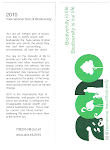Sunday, September 14, 2008
A NOTE ABOUT THIS WEBSITE/BLOG:
With the introduction of electronic media & expansion of the internet world-wide, one side effect has been too much verbiage, not well-thought-out. If one attempts to be succinct, it is viewed as having no depth. The more unintelligible a piece of writing, the more it is considered profound.
*
This is an effort on my part to be intelligible and communicate to people of all walks of life. Residing at the crossroads of national & international conflict and at a 'critical juncture in history', I also have a point of view that I believe is unique & exciting for those who have studied the subject matter and understand it deeply.
*
Albert Einstein once remarked that 'if you cannot explain it simply, you do not know it enough'. Some of the best theories that have had enormous impact are relatively simple, like Abraham Maslow's 'hierarchy of needs', used so widely in the training of teachers and in business. My theory is relatively simple: with social psychology as the underpinning, I can go very wide; with general systems theory as the 'structure', I have the ability to be very focused & rigorous. The 'theory' is not presented in the blog yet.
*
This blog is about ‘mental health’ and ‘diversity on the planet’, and not only about coming to terms with religious differences. There are many minute and acute other differences among peoples and living organisms. Do not exaggerate religious differences and neglect other ‘world-views’, differing ‘visions’ of 'collective destiny', or ‘grievances’ (real and imagined) as sources of conflict.
*
Essentially, mental wellbeing is about being congruent with oneself and one’s environment and working and playing at ‘optimal level’: some of the aspects of this are ‘beliefs systems, the emotional elements of these over the years since childhood and how they play a role in our lives, our 'world-views' in a changing world, the dynamics of internal conflict (conflict within oneself) and with the outside world, including parents, peers, school, workplace, other communities & one's own, etc..
*
It is about 'learning efficiencies' in school and life-long learning and efficiences in the global workplace. It is also about 'quality of life'. These areas are neglected in curriculum planning in educational institutions and continuing education and training on the factory floor.
*
All of the above impinge on our prospects of success in our lives, individually and collectively, and how we define and assess it.
*
In the past, in Christian tradition, there was something that was called ‘pastoral counseling’. It was an area whereby Christians went to their parish priest for ‘advice’ about their life challenges, and it was partly viewed from a religious perspective. With the growth of the fields of ‘psychology’ and ‘psychiatry’, parish priests lost much of their influence in the area of counseling.
*
In recent years, it is being recognized that humanity has made great advances in the sciences and producing things, but there have been very little advances in philosophy and understanding of the spiritual side of life.
*
Even in the area of medicine, it is becoming clear in recent years that ‘religion’ & the 'spiritual life' impact on the success of therapeutic interventions, and universities are beginning to include religion-related courses in their curriculums in medical school.
*
The Templeton Foundation (Sir Charles Templeton) gives out prizes akin to the Nobel prize to anyone who has made great contributions in the field of religion and philosophy, and also funds any university if it includes ‘religion-related’ courses in its medical faculties.
*
In the study of understanding of the universe and religion, there are some theorists who are building 'cosmologies' that encompass all religions and our collective understanding of Supreme Being. Teilhard de Chardin is one, from my own tradition, who wrote in the 1920s and is a modern pioneer in this area. It is a big and growing field of study.
*
With this blog the focus is on what commonalities exist in ‘sacred texts’ of various religions, areas of common understanding, and alleviation of human suffering caused by religious and political conflict. Sacred texts are the inspired word of God; they are not open to compromises for the sake of peace among humans who believe passionately in a variety of sacred texts that came into existence in different ways.
*
It is also about mental wellbeing, getting control of our focus and world-view while being sensitive to the needs and beliefs of others. We all do have fundamental human rights, and no power on earth has the right to violate these. They routinely do so, having monopolies on security interests and on economic power, and claim legitimacies in this regard.
*
I hope the materials and focus of this blog will be useful to many. It is dedicated to someone, a ‘soul-mate’, who gave me the impetus in a 'fork-in-the-road' type of emotional episode to go back into the proverbial ‘woods’ and collect and reorganize my thoughts and past work, and review in a fresh way ‘events’ and ‘relationships’ as we begin the 21st century. For that I am really very grateful.
*
Do go back into 'the woods', review 'your life' & what you want from it, stay focused, and make time to smell the roses. My one real regret is that I was too driven to do so, living as I was, it seems, in the vortex of conflict and continual challenges.
*
- Ivan Diego.
*
"Life is not measured by the breaths we take, but by the moments that take our breath away" - Anonymous
Posted by
IvanDiego_guidepost21
at
10:36 AM
![]()
Subscribe to:
Post Comments (Atom)









No comments:
Post a Comment